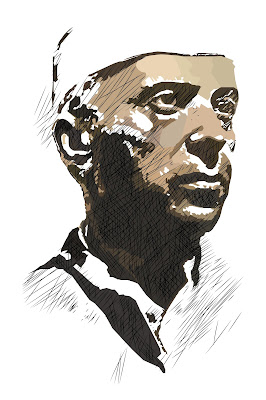Jawaharlal Nehru
Jawaharlal Nehru is considered one of the most famous personalities of India and almost every Indian is aware of his name. He was born in Allahabad on 14 November 1886 to a Kashmiri Brahmin family. Jawaharlal Nehru was educated at home during his early years. He was then sent to England for high school studies. He graduated from Trinity College in Cambridge and worked as an attorney at the Inner Temple in England. The late Pt. Jawaharlal Nehru worked hard and died for India. He was the son of Pt. Motilal Nehru and Swarup Rani. His father was a well-respected lawyer.
The Pandit Jawaharlal Nehru got married to the Kamala Kaul (Kamala Nehru) in 1916 when he was 27 and became the parent of Indira Gandhi. Because he loved children, he was fondly known as Chacha Nehru by the children. Children are the future of the Nation, according to the Pandit Jawaharlal Nehru.
Leadership of Jawaharlal Nehru
Mahatma Gandhi and Jawahar Lal Nehru met in Lucknow session in 1916. He was named INC General Secretary in 1923 and he became the first president of INC in 1929. This INC meeting in Lahore saw the passage of the Poorna Swaraj Resolution. He became the INC president during the largest number of INC sessions: Lahore (1929), Lucknow (1935), Faizpur (1936), New Delhi (1951), Hyderabad (1953), and Kalyan (1954).
The British had weakened the country after several hundred years of foreign rule, so everything had to be rebuilt from scratch, and Jawaharlal Nehru was not just a skilled politician but also a good planner and a competent thinker. As the first Prime Minister of India after the independence of India on 15th August 1947, Pandit Jawaharlal Nehru led India to progress, prosperity, and international respect.
Jawaharlal Nehru laid the foundation for democracy in India. He also represented this belief in democracy internationally by implementing the Non-Aligned Movement as part of India's foreign policy. This made India a pioneer in the Non-Aligned Movement. Dedicated to establishing an international order of peace and brotherhood, he led India, the largest democracy in the world, to a position of respect in the world following the path defined by Buddha, Christ, and Nanak.
Contribution of Jawaharlal Nehru
The thinking of Gandhi and Nehru was different. Gandhi and Nehru held different attitudes toward civilization. Nehru wanted to make India a more modern and civilized country. Due to his contributions in all fields, Pandit Jawaharlal Nehru earned the title of 'The Architect of Modern India'. He was one of the few men who made a huge impact on the country and the world.
As part of his contribution to the evolution of India's foreign policy, Nehru accepted non-alignment. This meant taking independent decisions on international issues and maintaining neutrality. In 1954, he visited China, and both countries signed the Panch Sheel agreement. Nehru was honored with the Bharat Ratna in 1955 and placed on an Indian postage stamp in 1964.
He is popularly known as 'Chacha Nehru' among the children and as such, his birthday is celebrated as Children's Day in India. He is and will continue to be remembered for his vision and commitment to the unity of the country and the liberty of mankind.
Conclusion
In 1889, Jawaharlal Nehru, and by the name of Pandit (Hindi: "Pundit" or "Teacher"), was born in Allahabad, India, and died in New Delhi, India in 1964. The first parliamentary government he established was noted for its neutral (nonaligned) foreign policy. 'Chacha Nehru' birthday is celebrated as children's day and his name will always remembered for his vision.














No comments:
Post a Comment
Please do not enter any spam link in the comment box